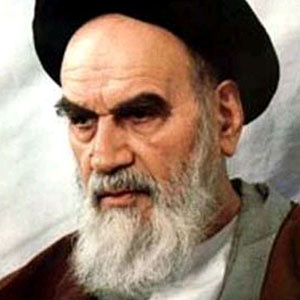Ayatollah Khomeini and Iran-US Relations

 Jamaran, the unofficial website of Ayatollah Khomeini’s household, interviewed Sadegh Kharrazi on Ayatollah Khomeini’s foreign policy, and his attitude toward Tehran-Washington relations.
Jamaran, the unofficial website of Ayatollah Khomeini’s household, interviewed Sadegh Kharrazi on Ayatollah Khomeini’s foreign policy, and his attitude toward Tehran-Washington relations.
Jamaran: Tell us about the historical, political, and social context of the seizure of US Embassy in the early months after the Islamic Revolution, which led to severance of ties between Tehran and Washington.
SK: The major cause of tensions between Iran and the United States-- which led to seizure of the embassy-- was Washington’s intervention in Iran’s internal affairs after the Revolution. This was not a new trend, of course. The Americans had persistently meddled in Iran’s domestic affairs after the coup they led against the democratic government of Dr. Mohammad Mosaddeq in 1953. Washington increasingly supported Mohammad Reza Pahlavi, who was ruling Iran with an iron fist. Besides, political support, intelligence cooperation between the countries, particularly the training of the notorious SAVAK agents by CIA officers, and selling advanced American weapons to the Shah’s army in lucrative deals, are all worth mentioning. The Islamic Revolution deprived the US of its key Middle East ally. The US of course acknowledged Iran’s new regime but strived to undermine the new system, as the myriad of confidential documents found after the seizure of the embassy attest. Iran-US relations did not have a sound basis before the revolution. The Shah felt indebted to the Americans for returning him the throne with the 1953 coup. Their relation had shifted into a master-servant mode. Disputes emerged between the Shah and the Americans in the early 1970s, but still the US ambassador to Tehran or military advisors of the US Army were powerful decision-makers who dictated their ideas to the Iranian monarch.
Jamaran: How did the Islamic Revolution change the US’ attitude towards Iran? Did they have a correct understanding of the Revolution?
SK: I would like to frame the Revolution as a strong defeat for US foreign policy. It had deep and extensive resonations throughout the Muslim World, and its impact is visible even today. Muslims redefined and embraced a new Islam after the 1979 Revolution. Many Third World nations looked at the Iranian Revolution as the victory of a conscious, united nation against a US puppet armed to the teeth. The US’ unilateral severance of ties with Iran demonstrated the weakness of the Americans; a superpower fails to overcome a developing country that wants to release itself from dependence.
Jamaran: How did Emam [Khomeini] view Tehran-Washington relations? Did he consider resumption of ties?
SK: Ayatollah Khomeini believed that the US and Israel look at Iran as a tool that had to serve their interests. From the outset of his anti-Shah campaign, Emam Khomeini pointed to the US’ and Israel’s influence on Iran and stressed that the Iranian nation didn’t want to live under the rule of foreigners. He highlighted Mohammad Reza Pahlavi’s dependence on Washington and supported the rule of people’s true representatives. Ayatollah Khomeini believed relations should resume only if they were no longer what he called ‘the wolf and sheep’ state; that is, if relations turned into an equal relationship, whereby Americans would stop their intervention in Iran’s domestic affairs.
Jamaran: What were the principles of Emam Khomeini’s foreign policy?
SK: Not to inflict or yield to unfair treatment. This was one of his tenets. He believed a Muslim country should not dominate other countries. Ayatollah Khomeini respected nations’ rights of self-determination, so he supported fighting against countries that aimed to loot the resources of weaker countries. Supporting the underprivileged of the world was another tenet of his foreign policy. By this, of course, he did not mean meddling in the internal affairs of other countries.
Jamaran: What is the current problem in relations between the US and Iran?
SK: A part of the problem is rooted in the developments of the early post-Revolution years; for example Washington’s condescending attitude towards the Islamic Republic. They keep interfering in Iran’s internal affairs in violation of the 1981 Algiers Accord. They also refuse to unfreeze Iran’s assets in American banks. Anti-Iran acts-- which have led to issuance of unfair verdicts against the Islamic Republic in US courts-- is another problem. Washington also follows a tough line against Iran through the UN Security Council. But the basic flaw is that the United States looks at Iran pompously, and tries to use different levers to impose on Iran its terms and conditions.

